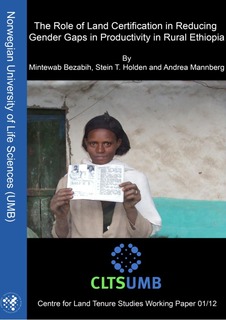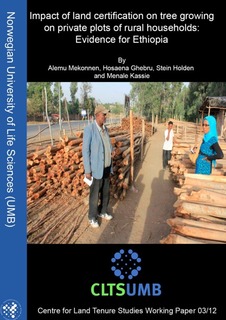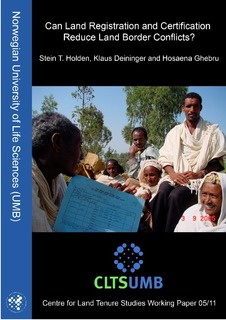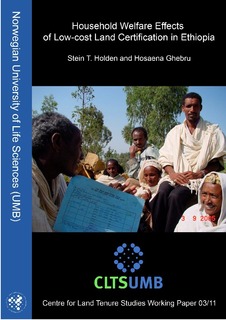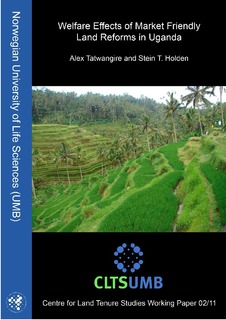Location
NMBU's mission is to contribute to the well-being of the planet. Our interdisciplinary research generates innovations in food, health, environmental protection, climate and sustainable use of natural resources.
About NMBU
NMBU's research is enabling people all over the world to tackle the big, global challenges regarding the environment, sustainable development, how to improve human and animal health, renewable energy sources, food production, and land- and resource management.
Members:
Resources
Displaying 66 - 70 of 98The role of land certification in reducing gender gaps in productivity in rural Ethiopia
This paper analyses the impact of a low cost and restricted rights land certification program on the productivity of female-headed households. The analysis is based on plot level panel data from the East Gojjam and South Wollo Zones in the Amhara region of Ethiopia. The results suggest a positive and significant effect of certification on plot-level productivity, particularly on plots rented out to other operators.
Impact of land certification on tree growing on private plots of rural households : evidence from Ethiopia
Does land registration and certification reduce land border conflicts?
This paper assesses factors related to local land border conflicts and how low cost land registration and certification has affected land conflicts during and after land registration and certification using data from northern Ethiopia. Border conflicts were more common near district centers, further away from markets, and where property rights had been redistributed more recently.
Household welfare effects of low-cost land certification in Ethiopia
Several studies have shown that the land registration and certification reform in Ethiopia has been implemented at an impressive speed, at a low-cost, and with significant impacts on investment, land productivity, and land rental market activity. This study provides new evidence on land productivity changes for rented land and on the welfare effects of the reform. The study draws on a unique household panel, covering the period up to eight years after the implementation of the reform.
Welfare Effects of Market Friendly Land Reforms in Uganda
This article estimates the poverty reducing impact of the recent land reforms and land transfers in the different land tenure systems of Uganda. Using balanced panel data for 309 households in 2001, 2003, and 2005, models that control for unobserved household heterogeneity and endogeneity of land acquisition and disposition are employed to measure the poverty-reduction effect of land on household expenditure per adult equivalent.


